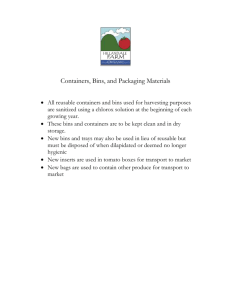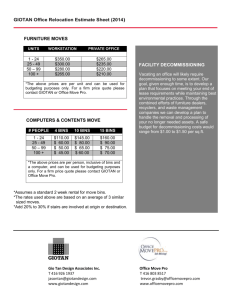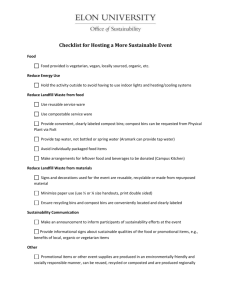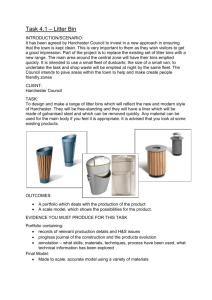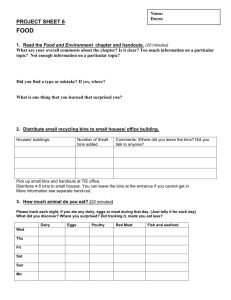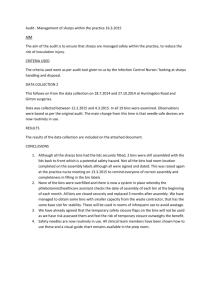Leasing grain bins has income tax implications
advertisement
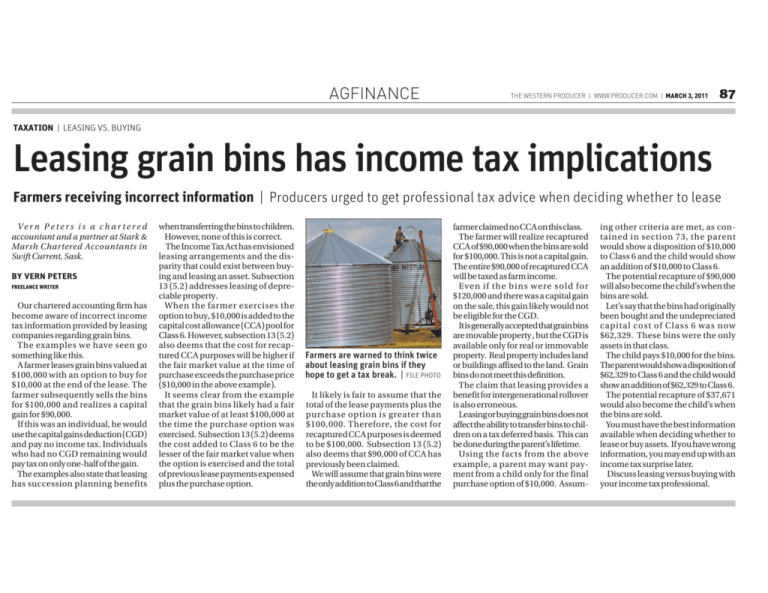
AGFINANCE THE WESTERN PRODUCER | WWW.PRODUCER.COM | MARCH 3, 2011 87 TAXATION | LEASING VS. BUYING Leasing grain bins has income tax implications Farmers receiving incorrect information | Producers urged to get professional tax advice when deciding whether to lease Ve r n P e t e r s i s a c h a r t e r e d accountant and a partner at Stark & Marsh Chartered Accountants in Swift Current, Sask. BY VERN PETERS FREELANCE WRITER Our chartered accounting firm has become aware of incorrect income tax information provided by leasing companies regarding grain bins. The examples we have seen go something like this. A farmer leases grain bins valued at $100,000 with an option to buy for $10,000 at the end of the lease. The farmer subsequently sells the bins for $100,000 and realizes a capital gain for $90,000. If this was an individual, he would use the capital gains deduction (CGD) and pay no income tax. Individuals who had no CGD remaining would pay tax on only one-half of the gain. The examples also state that leasing has succession planning benefits when transferring the bins to children. However, none of this is correct. The Income Tax Act has envisioned leasing arrangements and the disparity that could exist between buying and leasing an asset. Subsection 13 (5.2) addresses leasing of depreciable property. When the farmer exercises the option to buy, $10,000 is added to the capital cost allowance (CCA) pool for Class 6. However, subsection 13 (5.2) also deems that the cost for recaptured CCA purposes will be higher if the fair market value at the time of purchase exceeds the purchase price ($10,000 in the above example). It seems clear from the example that the grain bins likely had a fair market value of at least $100,000 at the time the purchase option was exercised. Subsection 13 (5.2) deems the cost added to Class 6 to be the lesser of the fair market value when the option is exercised and the total of previous lease payments expensed plus the purchase option. Farmers are warned to think twice about leasing grain bins if they hope to get a tax break. | FILE PHOTO It likely is fair to assume that the total of the lease payments plus the purchase option is greater than $100,000. Therefore, the cost for recaptured CCA purposes is deemed to be $100,000. Subsection 13 (5.2) also deems that $90,000 of CCA has previously been claimed. We will assume that grain bins were the only addition to Class 6 and that the farmer claimed no CCA on this class. The farmer will realize recaptured CCA of $90,000 when the bins are sold for $100,000. This is not a capital gain. The entire $90,000 of recaptured CCA will be taxed as farm income. Even if the bins were sold for $120,000 and there was a capital gain on the sale, this gain likely would not be eligible for the CGD. It is generally accepted that grain bins are movable property , but the CGD is available only for real or immovable property. Real property includes land or buildings affixed to the land. Grain bins do not meet this definition. The claim that leasing provides a benefit for intergenerational rollover is also erroneous. Leasing or buying grain bins does not affect the ability to transfer bins to children on a tax deferred basis. This can be done during the parent’s lifetime. Using the facts from the above example, a parent may want payment from a child only for the final purchase option of $10,000. Assum- ing other criteria are met, as contained in section 73, the parent would show a disposition of $10,000 to Class 6 and the child would show an addition of $10,000 to Class 6. The potential recapture of $90,000 will also become the child’s when the bins are sold. Let’s say that the bins had originally been bought and the undepreciated capital cost of Class 6 was now $62,329. These bins were the only assets in that class. The child pays $10,000 for the bins. The parent would show a disposition of $62,329 to Class 6 and the child would show an addition of $62,329 to Class 6. The potential recapture of $37,671 would also become the child’s when the bins are sold. You must have the best information available when deciding whether to lease or buy assets. If you have wrong information, you may end up with an income tax surprise later. Discuss leasing versus buying with your income tax professional.
